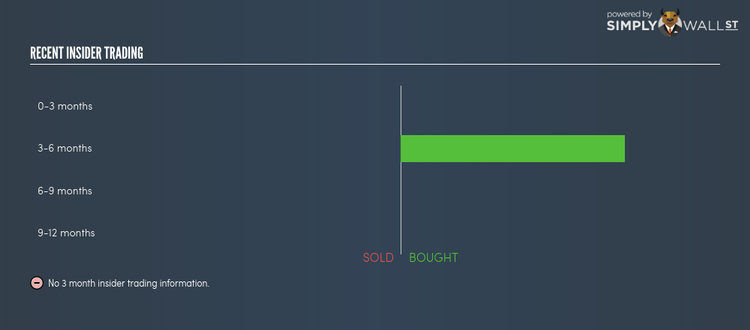Who Are The Largest Shareholders In Boss Resources Limited (ASX:BOE)?

I am going to take a deep dive into Boss Resources Limited’s (ASX:BOE) most recent ownership structure, not a frequent subject of discussion among individual investors. Ownership structure of a company has been found to affect share performance over time. Since the effect of an active institutional investor with a similar ownership as a passive pension-fund can be vastly different on a company’s corporate governance and accountability of shareholders, investors should take a closer look at BOE’s shareholder registry.
Check out our latest analysis for Boss Resources
Institutional Ownership
BOE’s 12.29% institutional ownership seems enough to cause large share price movements in the case of significant share sell-off or acquisitions by institutions, particularly when there is a low level of public shares available on the market to trade. However, as not all institutions are alike, such high volatility events, especially in the short-term, have been more frequently linked to active market participants like hedge funds. For shareholders in BOE, sharp price movements may not be a major concern as active hedge funds hold a relatively small stake in the company. Although this doesn’t necessarily lead to high short-term volatility, we should dig deeper into BOE’s ownership structure to find how the remaining owner types can affect its investment profile.
Insider Ownership
Another important group of shareholders are company insiders. Insider ownership has to do more with how the company is managed and less to do with the direct impact of the magnitude of shares trading on the market. A major group of owners of BOE is individual insiders, sitting with a hefty 37.60% stake in the company. Broadly, insider ownership of this level has been found to negatively affect companies with consistently low PE ratio (underperforming). And a positive impact has been seen on companies with a high PE ratio (outperforming). Another aspect of insider ownership is to learn about their recent transactions. While insider buying is possibly a sign of a positive outlook for the company, selling doesn’t necessarily indicate a negative outlook as they may be selling to meet personal financial needs.
General Public Ownership
The general public holds a substantial 46.14% stake in BOE, making it a highly popular stock among retail investors. With this size of ownership, retail investors can collectively play a role in major company policies that affect shareholders returns, including executive remuneration and the appointment of directors. They can also exercise the power to decline an acquisition or merger that may not improve profitability.
Private Company Ownership
Another important group of owners for potential investors in BOE are private companies that hold a stake of 3.97% in BOE. These are companies that are mainly invested due to their strategic interests or are incentivized by reaping capital gains on investments their shareholdings. However, an ownership of this size may be relatively insignificant, meaning that these shareholders may not have the potential to influence BOE’s business strategy. Thus, investors not need worry too much about the consequences of these holdings.
Next Steps:
The company’s high institutional ownership makes margin of safety a very important consideration to existing investors since long bull and bear trends often emerge when these big-ticket investors see a change in long-term potential of the company. This is to avoid getting trapped in a sustained sell-off that is often observed in stocks with this level of institutional participation. However, ownership structure should not be the only determining factor when you’re building an investment thesis for BOE. Rather, you should be examining fundamental factors such as Boss Resources’s past track record and financial health. I highly recommend you to complete your research by taking a look at the following:
Financial Health: Is BOE’s operations financially sustainable? Balance sheets can be hard to analyze, which is why we’ve done it for you. Check out our financial health checks here.
Past Track Record: Has BOE been consistently performing well irrespective of the ups and downs in the market? Go into more detail in the past performance analysis and take a look at the free visual representations of BOE’s historicals for more clarity.
Other High-Performing Stocks: Are there other stocks that provide better prospects with proven track records? Explore our free list of these great stocks here.
NB: Figures in this article are calculated using data from the last twelve months, which refer to the 12-month period ending on the last date of the month the financial statement is dated. This may not be consistent with full year annual report figures.
To help readers see pass the short term volatility of the financial market, we aim to bring you a long-term focused research analysis purely driven by fundamental data. Note that our analysis does not factor in the latest price sensitive company announcements.
The author is an independent contributor and at the time of publication had no position in the stocks mentioned.


